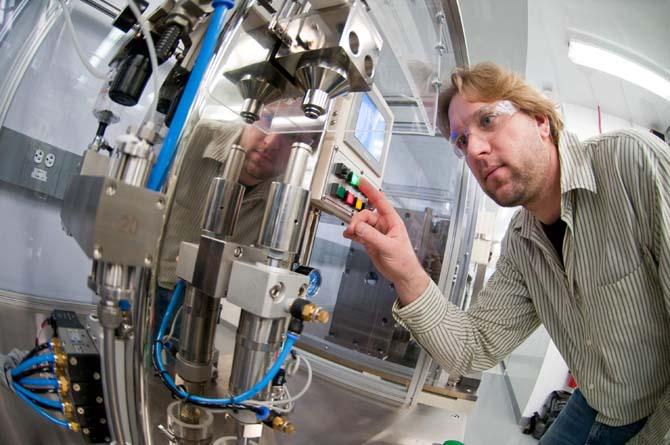Imagine for a moment that your cell phone could stay on for three days and still have 50 percent battery left. Now imagine that charging that phone’s battery would only take five minutes. Now come back to reality, where phone batteries are considered “good” if they last 12 hours or more with heavy usage.
When will batteries not suck?
Since cellular phones became a staple in this generation’s culture, this question has yet to be answered. Phones are now surpassing the abilities of the desktop computers popular just five years ago, but they can’t seem to hold a charge.
Here’s the problem: Since 2005 or so, phones have been using lithium-ion batteries and not much else. It’s the industry standard for mobile power.
The battery technology did not grow alongside other phone components, however. As processors, cameras and memory all made leaps and bounds technologically, they were forced to draw power from the same batteries we’ve been shoving into phones for nearly a decade.
The worst news is, no one can say definitively when batteries will make the leap from terrible to terrific.
There are other technologies being tested, but many of them are not as cost effective as lithium-ion and could take years to become cheap enough to implement on a large scale.
If we can create phones that can accommodate eight cores of processing power, then — in my eyes — we have the capabilities to create better batteries. The challenge of creating a new, more efficient battery is a tough one, but one that isn’t impossible.
The solution is simple: Divert more funding and attention to battery technology and away from things like phone thinness and design. I would much rather have a phone that’s 0.1-millimeter thicker if it meant that my battery could last an extra hour. The age of wowing audiences with how thin a phone can be has passed — the real wow factor will come with performance and premium features.
The world needs more people like Eesha Khare to direct their massive amount of intelligence toward solving this issue. Khare, according to CNN Tech, won a $50,000 prize at the Intel International Science and Engineering Fair for creating a miniature supercapacitor that can charge a cell phone battery in as little as 20 seconds.
Khare’s device may not directly solve the short battery life issue, but it definitely puts the right foot forward. At 18 years old, she’s proven that this problem doesn’t require years of experience to tackle — maybe just a different perspective.
Even with Khare’s new supercapacitor and the testing of lithium-sulfur batteries that last up to four times as long as lithium-ion, we are most likely stuck with current battery technology for a while. This being the case, the recently announced Droid MAXX makes a lot of sense.
The MAXX, one of three new phones from Motorola, offers an unheard-of 48 hours of battery life. This absurd capacity isn’t the result of any new technology, just an extremely large battery. This makes the phone considerably fatter than its brother, the Droid Ultra, but it is still very thin and light considering the circumstances.
Motorola is on the right track with the MAXX. If our batteries can’t get any better for now, we might as well beef them up to make up for the slack. All we can do is hope other manufacturers see the wisdom in Motorola’s strategy and follow suit.
Opinion: Creating a better cell phone battery is not impossible
July 24, 2013





